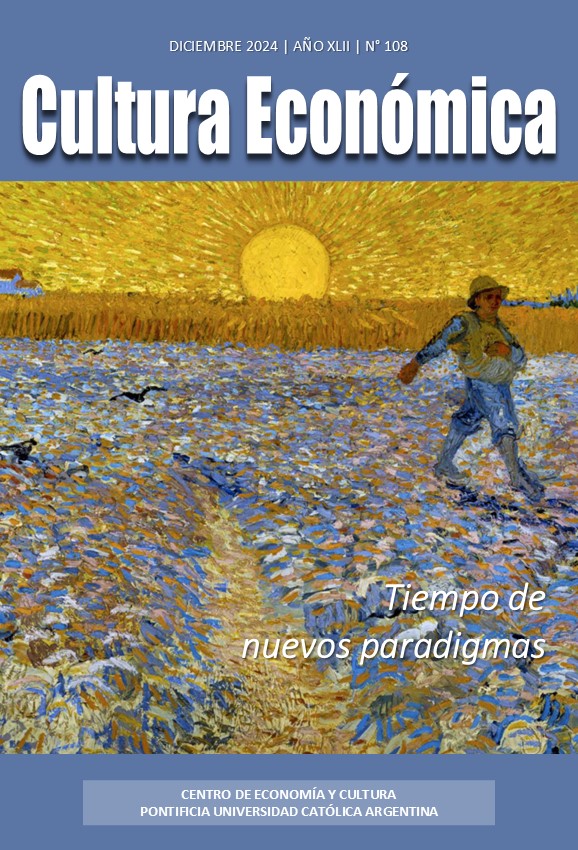La relación entre las nuevas Normas Internacionales de Sostenibilidad NIIF S1 y S2 y el Balance Social en Argentina, regulado por la Resolución Técnica N° 36
DOI:
https://doi.org/10.46553/cecon.42.108.2024.p86-100Palabras clave:
Normas internacionales de Sostenibilidad, Balance Social, Informes de Sostenibilidad, Auditoría, NIIF SResumen
El desarrollo sostenible compromete a las empresas a hacer frente al cambio en sus sistemas de gestión y reporte, mutando su propósito de maximizar ganancias hacia la creación de valor económico, social y ambiental, así como al gobierno corporativo. Se considera importante abordar el problema que se plantea en las organizaciones al definir las herramientas a utilizar para informar sobre sus acciones realizadas en materia de sostenibilidad. La siguiente investigación tiene como objetivo comparar los aportes sobre la información financiera a revelar relacionada con la sostenibilidad de las normas NIIF S1 y NIIF S2, con el Balance Social de la RT 36. La investigación se basó en un enfoque cualitativo, de tipo documental. El resultado de esta investigación bibliográfica pone de manifiesto la necesidad de integrar los nuevos conceptos vertidos en las normas internacionales hacia la actualización de la RT 36 modificada por la RT 44, y establece como punto de partida para futuras líneas de investigación el cuestionamiento sobre la necesidad del aseguramiento obligatorio de los informes de sostenibilidad y cuál será el rol del profesional en ciencias económicas en esta faceta. La academia sostiene la importancia de mantenerse informado en los avances de los organismos emisores, particularmente el ISSB, y en las regulaciones en cada país, que llegarán rápidamente, en forma opcional inicialmente y en forma obligatoria luego de un tiempo.
Descargas
Citas
Berri, A. M., & Palacios, C. L. (2019). Fundamentos que avalan al contador público como verificador del balance social. En C. Palacios (Comp.), Anuario XIV (pp. 7-23). Universidad Católica Argentina. Facultad de Ciencias Económicas. https://repositorio.uca.edu.ar/handle/123456789/11047.
FACPCE (30 de noviembre de 2012). RT 36 Balance Social. https://www.facpce.org.ar/NORMASWEB/index_argentina.php?c=1&sc=1&p=2
Fellner, A. (2016). RT 36: la importancia del balance social empresarial. Enfoques n°8, 22-29.
Institude of Internal Auditors (2015). Perspectivas y percepciones globales: más allá de los números: el papel de la auditoría interna en los informes no financieros. Internal Auditor, 3-7.
ISSB (2023). Requisitos generales para la divulgación de información financiera relacionada con la sostenibilidad. https://www.ifrs.org/issued-standards/ifrs-sustainability-standards-navigator/ifrs-s1-general-requirements/
Miazzo, C. E. (2022). Regulación contable en Argentina: una revisión desde los paradigmas en presencia. Contabilidad y Auditoría, 28(55), 17-48.
Palacios Manzano, M., & Martínez Conesa, I. (2005). El proceso de armonización contable en Latinoamerica: camino hacia las normas internacionales. Revista Contabilidade & Financas, 16(39), 103-117.
Palacios, C. L. (19 de abril de 2018). Contribuciones para la construcción del Balance Social en Argentina [Tesis Doctoral]. Universidad Nacional de Rosario.
Pazienza, M., De Jong, M., & Schoenmaker, D. (2022). Clarifying the concept of corporate sustainability and providing convergence for its definition. Sustainability, 14(13), 7838.
Prinsloo, A., & Gould, S. (8 de Marzo de 2016). Es hora de actuar: contribución de la profesión contable en los objetivos de desarrollo. International Federation of Accountants. https://www.ifac.org/knowledge-gateway/discussion/es-hora-de-actuar-contribucion-de-la-profesion-contable-en-los-objetivos-de-desarrollo-sostenible
Rey-Garcia, M. (2019). La empresa en un nuevo contrato social para la sostenibilidad: del principio ético global a los modelos de negocio innovadores. Información Comercial Española, ICE: Revista de Economía, N° 911, 41-52.
Solari, E., & Méndez Sáenz, A. B. (2020). ¿Las empresas argentinas socialmente responsables tienen un mejor desempeño económico? Latitud Sur, N° 15, 48-68.
Descargas
Publicado
Cómo citar
Número
Sección
Licencia

Esta obra está bajo una licencia internacional Creative Commons Atribución-NoComercial-CompartirIgual 4.0.













